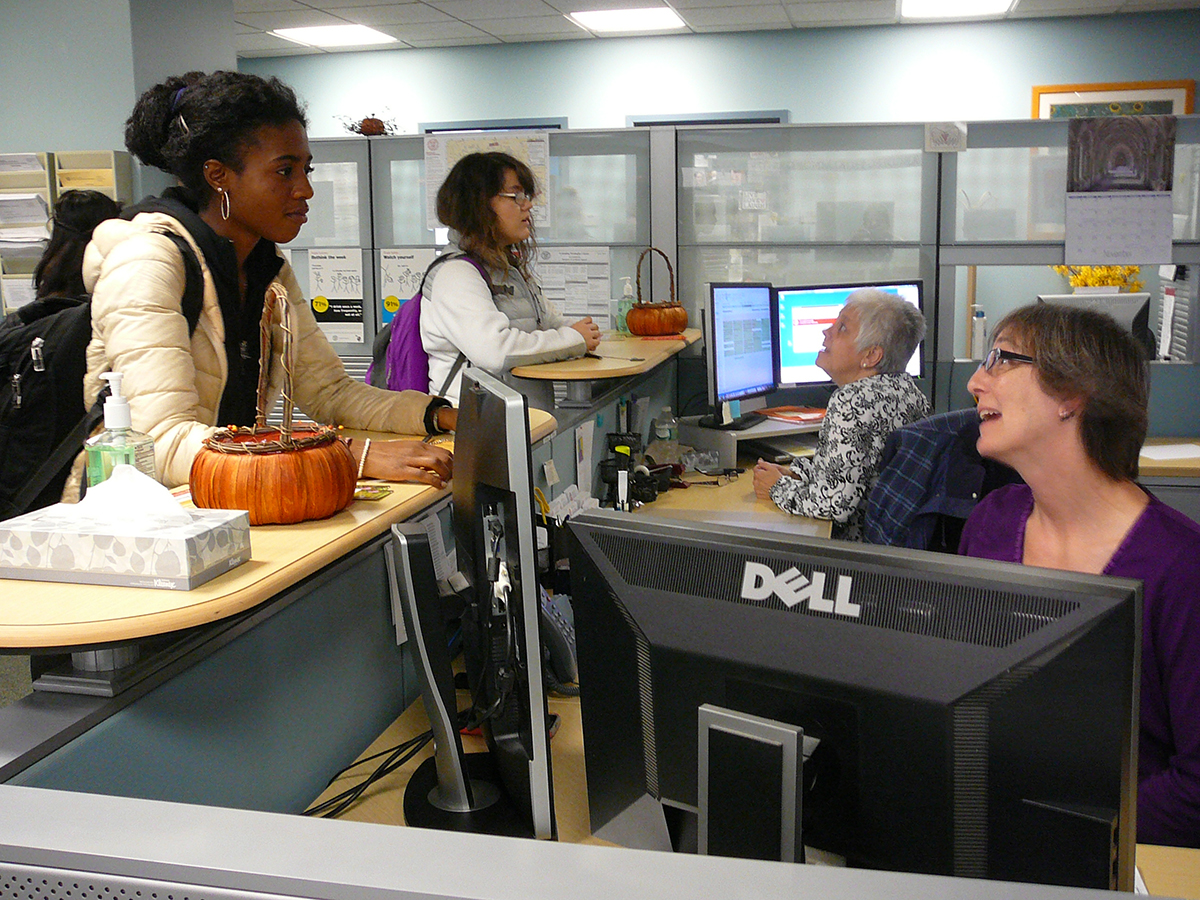CALS uses tech to reduce administrative tasks
By Nancy Doolittle

Mission: Automate routine tasks so that employees and students can spend more time on high-quality, meaningful work.
Not a new concept, says Rebecca Joffrey: Corporations have been using service technology for years to improve their processes, and for younger generations, having what you want at the touch of your fingertips – whether buying online or communicating with a subset of friends on Facebook – is as natural as breathing. Even better: signing up to receive information automatically rather than hunting for it or remembering deadlines.
Joffrey, director of Interactive Services in the College of Agriculture and Life Sciences (CALS), would know. She and Ann LaFave, director of CALS Student Services, are using technology to relegate routine administrative tasks to a few quick keystrokes so that one-to-one interactions with students can focus on complex concerns and the office can better anticipate and meet students’ needs. These technologies also respond to President Elizabeth Garrett’s call to lessen administrative burden on campus.
“The current student services model of one-on-one training and advising is not sufficient to support the growth in programs at Cornell, the increasing demands from students, parents, alumni and recruiters, and the growing emphasis on assessment and metrics,” says LaFave. “CALS is applying proven, already developed customer relationship management (CRM) technologies to a wide range of academic processes to improve the overall student services experience.”
CALS Student Services has partnered with students and department leaders to find ways to eliminate paper forms and redundant tasks – often not just automating current processes but reinventing them entirely.
“The overall technology vision starts with the students,” Joffrey says. For instance, CALS students had voiced their challenges in finding the right offices to help them and figuring out where to find information when needed. A social media platform, Chatter, was launched in summer 2013 to give students a venue to ask questions and get answers from peers and staff members, Joffrey says. The same tool allows faculty to “follow” their advisees.
“Last summer, our new student on-boarding community generated 2,400 posts and comments in 12 weeks, with 99 percent of students logging in,” Joffrey says. Logins to CALS Student Services Chatter are up to approximately 10,000 per month.
A recently launched mentoring program helps alumni connect with students for career conversations, resume critiques and mock interviews. More than 750 alumni enrolled in the system in three weeks, and have supported 83 student consultations to date.
A new marketing tool, launched this past summer, helps students in pursuit of their careers by automating the Dyson School’s communications with employers and the career team’s development of a support program for semester-away students. A speakers’ bureau (planned for 2016) will help professors, clubs and event organizers work directly with alumni to book their visits to campus.
Perhaps the greatest time saver for staff came with the implementation of a customer-relations technology, Salesforce, to identify and support students struggling in their classes, LaFave says. Before its launch this fall, faculty would report students having difficulties in a course through a variety of vehicles: spreadsheets, lists, phone calls and emails. Student Services would organize the lists and individually email more than 200 students to suggest resources, such as tutoring.
Now, using a Salesforce application, faculty can review their class lists and report those students in need of help via a web link – indicating the problems they are having (missing classes, failing tests, not completing assignments, etc.) and the steps needed to turn things around.
“This outreach process, which used to take weeks, now takes minutes,” says LaFave. The process is expected to decrease the number of students who end up with difficulties at the end of the semester, she said.
These technologies adapt easily to educational settings, says Joffrey. CALS Student Services isn’t the only unit at Cornell deploying these tools. The Samuel Curtis Johnson Graduate School of Management has adopted Chatter and is actively using other CRM technologies. ILR and the School of Hotel Administration are using CRM for executive education and corporate outreach. Recently, CALS Student Services received a $150,000 grant from the Salesforce Foundation to work with 15 other universities or colleges to customize additional tools for higher education.
Media Contact
Get Cornell news delivered right to your inbox.
Subscribe